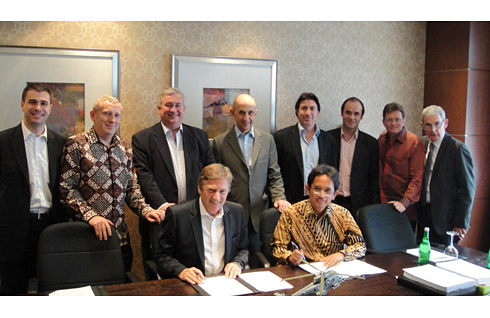WASHINGTON, Sept. 9, 2010 — Defense Secretary Robert M. Gates and his top advisors are discussing whether Gates should intervene personally in a Florida pastor’s plans to burn copies of the Quran on the ninth anniversary of the Sept. 11, 2001, attacks, Pentagon Press Secretary Geoff Morrell said today.
“This is obviously of serious concern to us,” Morrell told reporters in a Pentagon news conference. “We believe it could seriously endanger our forces. So this is something we are actively discussing within the administration in terms of taking this unusual measure of calling this pastor and trying to convince him that it is not the right thing to proceed with.”
Several administration officials, including President Barack Obama and Secretary of State Hillary Rodham Clinton, this week urged Terry Jones, pastor of a small evangelical church in Gainesville, Fla., to rethink his plans. Army Gen. David H. Petraeus, commander of U.S. and NATO forces in Afghanistan, and Army Gen. Raymond T. Odierno, former top commander of troops in Iraq, also weighed in, calling for the church to consider the potential risk to troops serving abroad.
A public burning of the Quran would jeopardize the safety of U.S. troops serving around the world, Morrell said, saying that such an act leaves the Defense Department “particularly exposed here, in light of how closely we operate with people of the Muslim faith.”
“I think the message is out there loud and clear,” Morrell continued. “This has the potential to further endanger our forces already in harm’s way in Afghanistan, in Iraq, … frankly, anywhere around the world where we operate in predominantly Muslim countries.”
Pentagon officials want to ensure the burning does not take place. The effect of the church’s actions could cause death and destruction around the world, Morrell said. He noted that an “erroneous” news story in 2005 that alleged defamation to the Quran led to violent protests that left 15 people dead.
Some protests have already begun in Afghanistan at the mere threat of burning the Quran, Morrell noted. Pentagon officials don’t want a repeat of the 2005 incident, which he called “very bloody and violent protests around the world.”
“This is far more than setting a blaze in a disrespectful way to holy books at a small church in Florida,” he said. “The potential ripple effect here is very real. We want to avoid a repeat of [2005].”
Officials also worry that other anti-Islamic groups will follow in the Florida church’s footsteps, Morrell said. The news media, he suggested, have a role in this concern.
“This is the pastor of an obscure small church in Florida who has been given an incredible international platform due, frankly, not to General Petraeus’ comments or any other member of the government’s comments, but because of extraordinary media coverage,” he said.
Gates has yet to comment publicly on the subject, but Morrell said the secretary has “no reluctance” to voice his concern. The secretary, he added, does not take the issue lightly. “[Gates] is a very active participant in these conversations,” Morrell said. “We have real vital interests at stake here. Rest assured: he is as concerned about this as everyone you have seen on television speaking on this, because he feels a personal responsibility for all of the troops under his command.”
Morrell said a “collective” decision will be made by the administration about if, when and which top official will be the best person to contact the pastor directly.
Gates has not issued guidance to troops serving in Muslim nations, and officials have set no mandates within the Pentagon in terms of actions to take should violent protests erupt in light of a Quran burning, Morrell said.
Source:
U.S. Department of Defense
Office of the Assistant Secretary of Defense (Public Affairs)

 von
von 